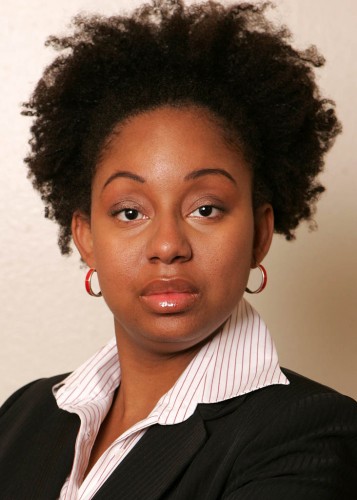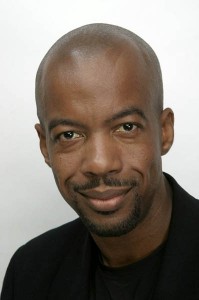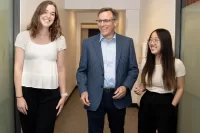
Symposium: How does knowledge about human difference play out at work?
As an assistant professor of English, Therí Pickens will teach and mentor countless students as they pass through Bates en route to a career.
“I want to make sure that when they go out into the world, they understand how to interact with people in ways that deploy the knowledge they gained in my classroom,” she says — particularly what they learned about differences among people.
That’s why Pickens has organized a Bates symposium in March that will show students how knowledge about identity and difference can be put into practice in the workaday world.
Beyond Intellectual Profit: Using Classroom Knowledge in the Workplace takes place from 10 a.m. to 4:30 p.m. on Saturday, March 2, in Rooms 221-222 of New Commons, 136 Central Ave. The public is invited to attend at no cost.
Kirk Nugent, a poet and prominent motivational speaker, facilitates the event. Other symposium presenters include Bates alumni; Bates staff; and representatives from local businesses and nonprofits. Read more about Kirk Nugent.
The symposium comprises four discussions: a panel about how employers deal with difference in the workplace; a lunchtime session about connections between coursework and the workplace; a look at how theoretical concepts inform professional work; and a panel with Bates staff describing how they integrate discussions of difference into their jobs.
To register for any or all of the sessions, please visit: bit.ly/Bates-Beyond. For more information, please call Pickens at 207-753-6963.
Pickens was moved to produce the symposium by the realization that students, while often receptive and responsive in the classroom to discussions around such distinctions as race/ethnicity, gender and ability, don’t always translate what they learn to behavior outside of class. And after college, behavior can make or break a career.
For example, “What do you do to make sure people are appreciated?” she says. “How do you ensure that there is pay commensurate with responsibilities? What do you do when there is a class divide?”
She explains, “There’s a calling that we have as an intellectual community to really think about how we practice diversity and how we live it. It has to be more than just, ‘Oh that’s just someone’s thing, that’s so-and-so’s culture.’
“You have to engage with it. It has to mean getting to know somebody. Sometimes it means asking questions, and sometimes being rebuffed when the questions are uncomfortable.”
The symposium supports a Bates ethos that college President Clayton Spencer calls “purposeful work” — helping students make sense of themselves and the world, discovering their passions and how they can integrate those into a meaningful career.
“My intent really was to make sure students have an idea of what it means to use a Bates education,” says Pickens. “I think we can make sure that students have a sense of how their knowledge in a women’s studies class or African American studies or English class is useful.”
As a student, Pickens set out to be a biochemical engineer. But she turned to comparative literature because, she says, “I found some value in studying something with a bit more of a liberal arts bent.
“The passion that I have for the liberal arts drives me to see the way it works in the world. To have purposeful work, meaningful work, is to marry passion with skill, to marry opportunity with knowledge,” she says.
“Our graduates go on to do amazing things. I want them to not just open doors for themselves but for other people.”
Sponsoring the symposium are the Harward Center for Community Partnerships, the Bates Career Development Center and Office of Intercultural Education, the offices of the dean of the faculty and the special assistant to the president for diversity, and the English department.






